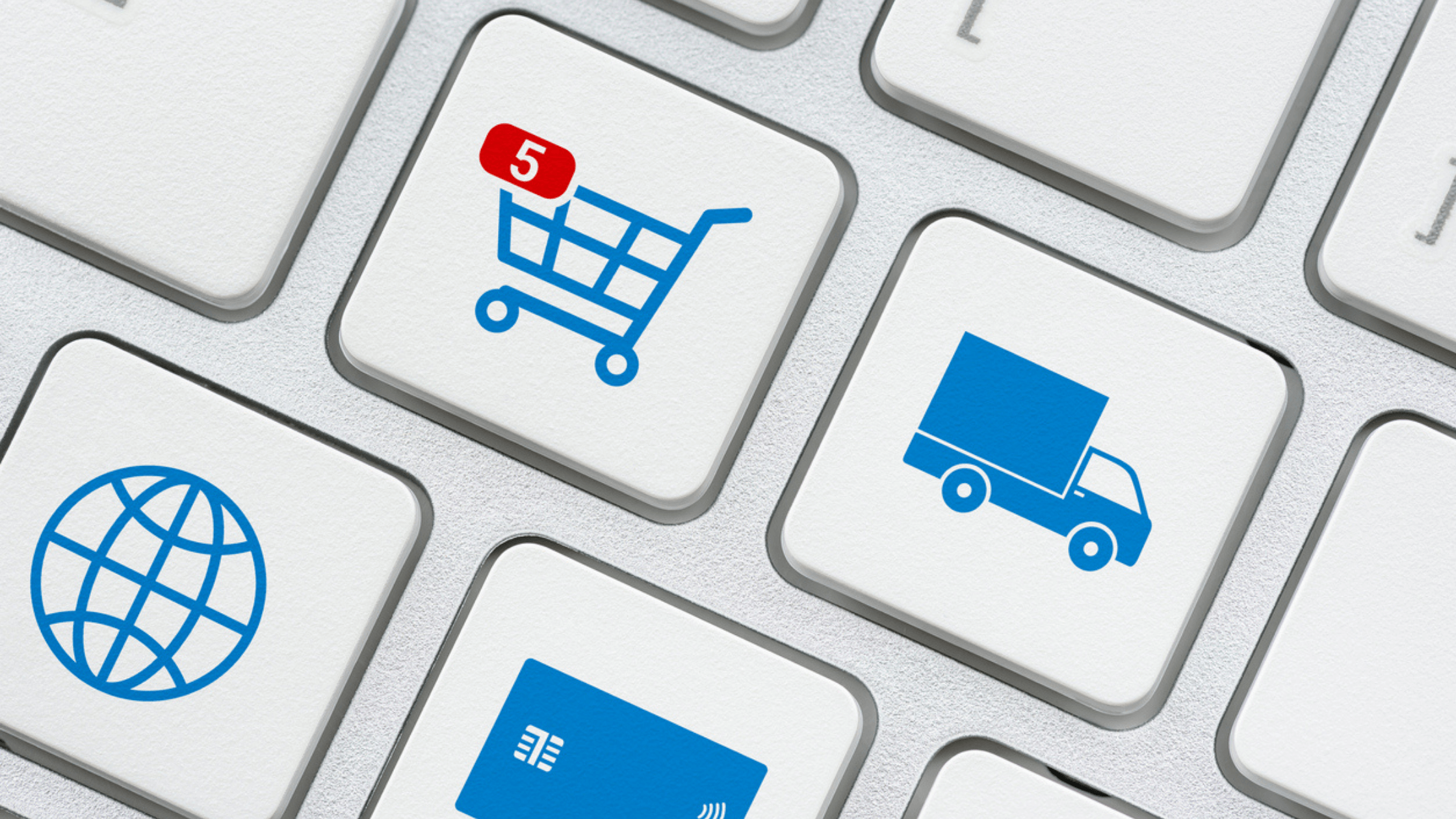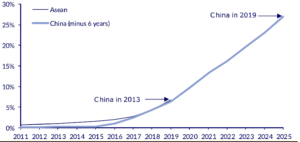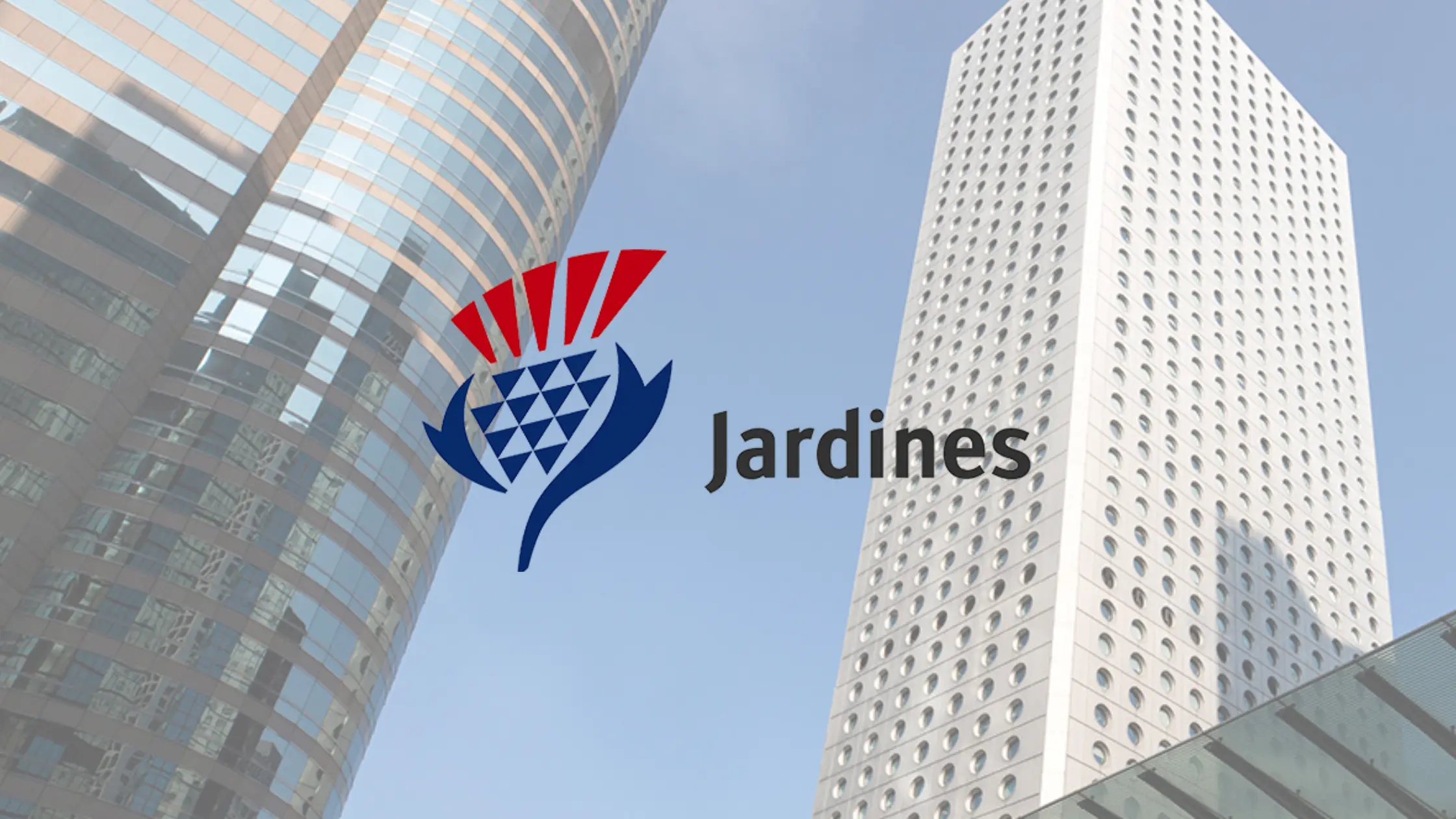Chart of the Week: Sea’s E-Commerce Growth Runway Still Huge
November 20, 2020

Stock markets recently have been focused on the huge potential of vaccines for Covid-19. This sparked a rotation into perceived “value” stocks, such as airlines, banks and any company reliant on cross-border travel.
However, one thing that isn’t changing (after Covid-19 is finally conquered) is consumers’ taste for e-commerce. Earlier this week, Sea reported its third-quarter earnings.
The company owns the popular Southeast Asian-focused e-commerce platform Shopee and online gaming firm Garena.
Winning in e-commerce
The results were call “disappointing” and shares duly fell. If you call revenue growth of 98.7% year-on-year disappointing, then maybe you’re unreasonably expecting that sort of growth to be the norm.
However, what short-term traders fail to focus on is the extraordinary growth runway that Sea has ahead of it.
Shopee is the number one e-commerce platform in Indonesia (a country of over 250 million people) while it also ranks among the top two in most other key Southeast Asian markets.
The Southeast Asian region – home to more than 700 million people – is just at the start of its e-commerce journey.
In 2019, China’s e-commerce penetration (basically the percentage of overall retail sales that took place online) was close to 30%.
In the US, this number was around 16% in 2019. How about Southeast Asia? As you can see below, it’s where China was back in 2013.
If you believe Sea is destined to be the Amazon.com Inc (NASDAQ: AMZN) of Southeast Asia then it’s US$82 billion market cap means there’s plenty more room to grow – no matter what the short-term doubters might say.
E-commerce penetration of ASEAN versus China minus six years

Source: CLSA, Euromonitor
Disclaimer: ProsperUs Head of Content Tim Phillips owns shares of Sea Ltd.
This material is categorised as non-independent for the purposes of CGS-CIMB Securities (Singapore) Pte. Ltd. and its affiliates (collectively “CGS-CIMB”) and therefore does not provide an impartial or objective assessment of the subject matter and does not constitute independent research. Consequently, this material has not been prepared in accordance with legal requirements designed to promote the independence of research. Therefore, this material is considered a marketing communication.
This material is general in nature and has been prepared for information purposes only. It is intended for circulation amongst CGS-CIMB’s clients generally and does not have regard to the specific investment objectives, financial situation and the particular needs of any specific person who may receive this material. The information and opinions in this material are not and should not be construed or considered as an offer, recommendation or solicitation to buy or sell the subject securities, derivative contracts, related investments or other financial instruments or any derivative instrument, or any rights pertaining thereto. CGS-CIMB have not, and will not accept any obligation to check or ensure the adequacy, accuracy, completeness, reliability or fairness of any information and opinion contained in this material. CGS-CIMB shall not be liable in any manner whatsoever for any consequences (including but not limited to any direct, indirect or consequential losses, loss of profits and damages) of any reliance thereon or usage thereof.

Tim Phillips
Tim, based in Singapore but from Hong Kong, caught the investing bug as a teenager and is a passionate advocate of responsible long-term investing as a great way to build wealth.
He has worked in various content roles at Schroders and the Motley Fool, with a focus on Asian stocks, but believes in buying great businesses – wherever they may be. He is also a certified SGX Academy Trainer.
In his spare time, Tim enjoys running after his two young sons, playing football and practicing yoga.







